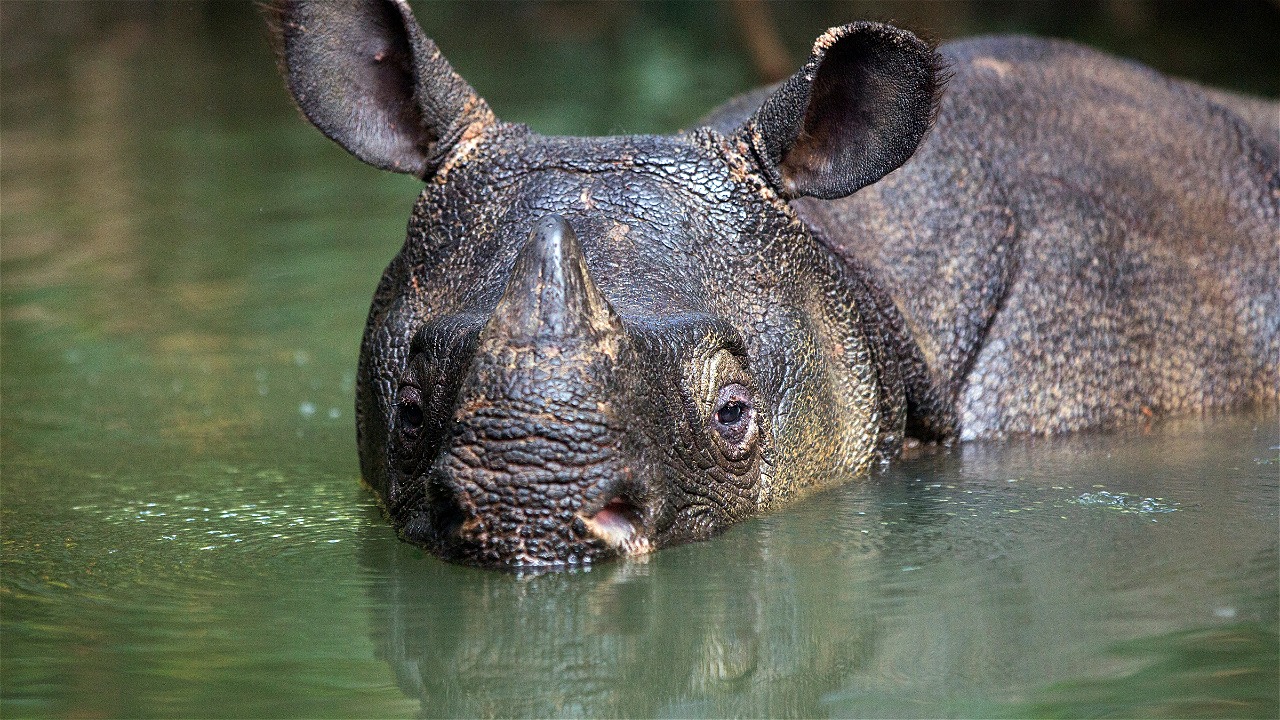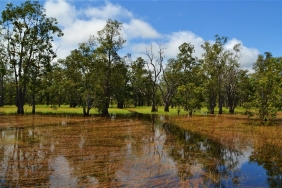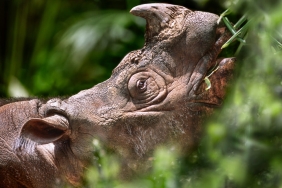THE PRESENCE OF THREE RHINO CUBS, A NEW HOPE FOR JAVAN RHINOS
A happy sight of Javan rhinos was captured by camera traps in Ujung Kulon National Park. Three rhino calves were recorded in three different areas between April and July 2015. Meanwhile, in July 2015, the Ujung Kulon National Park Authority announced the latest population survey which stated that 57 Javan Rhinos were in the National Park area.
The three rhino calves are known to be two males and one female, and were born to mothers named Siti, Ratu and Desy. All three were caught in camera traps in three separate areas, namely in the West, East and South of the Ujung Kulon Peninsula.
The presence of these three calves is one indicator that the environment in the National Park is still adequate to support a stable rhino population. However, the invasion of langkap has taken over about 60% of the habitat area and marginalized the Javan Rhino population on the Peninsula into a compartmentalized and isolated three pockets. The massive occupancy of traps and the birth of rhino calves makes it all the more important to establish corridors between the three enclaves and other measures to control the proliferation of traps, to aid the mobility of a healthy rhino population.
WWF Indonesia has played an active role in conservation programs in Ujung Kulon National Park since 1962. Monitoring the Javan Rhino population with camera traps is WWF Indonesia's biggest support. Currently more than 90 camera traps are installed and operating in the Park. WWF Indonesia also works with partners such as the Indonesian Rhino Foundation (YABI) in intensifying patrols to strengthen population security in the National Park. WWF Indonesia, the National Park and local communities are also working to improve the quality of the Javan rhino by planting 50 hectares of land for rhino food plant enrichment in the habitat.
Currently, WWF Indonesia is intensely working with the National Park and other NGOs to identify the most appropriate habitat as a second home for Javan Rhinos. This is critical to maintain the stability of the Javan Rhino population in the world, as an effort to anticipate the risk of natural disasters, endemic diseases and the spread of harmful aggressive species.
For more information:
Anwar Purwoto, Director of Sumatra & Borneo WWF Indonesia, apurwoto@wwf.or.id
Yuyun Kurniawan, Project Leader Ujung Kulon WWF Indonesia, ykurniawan@wwf.or.id





